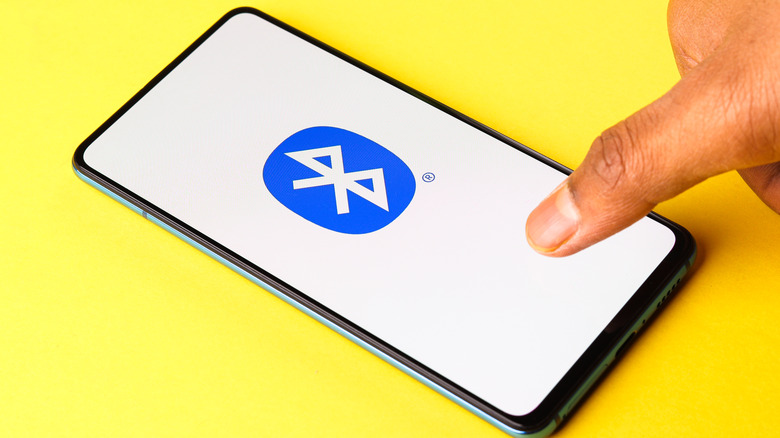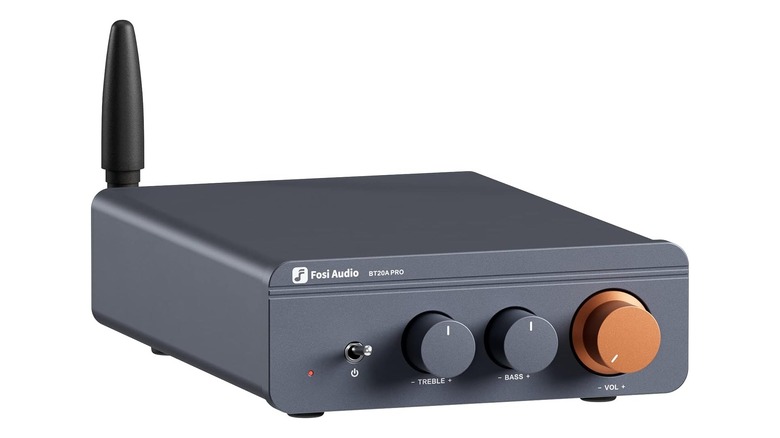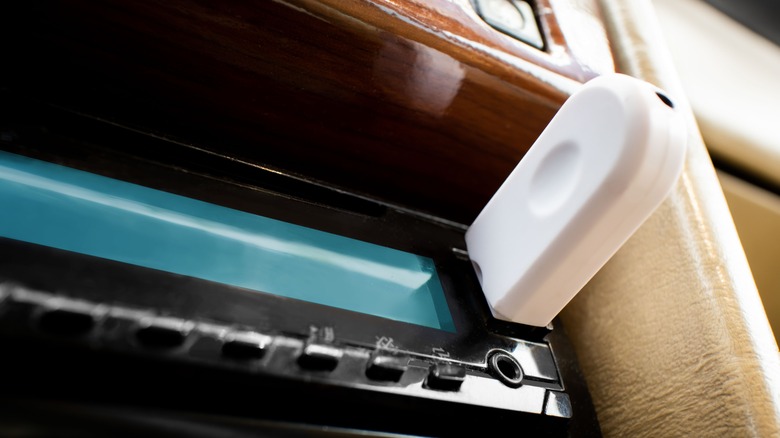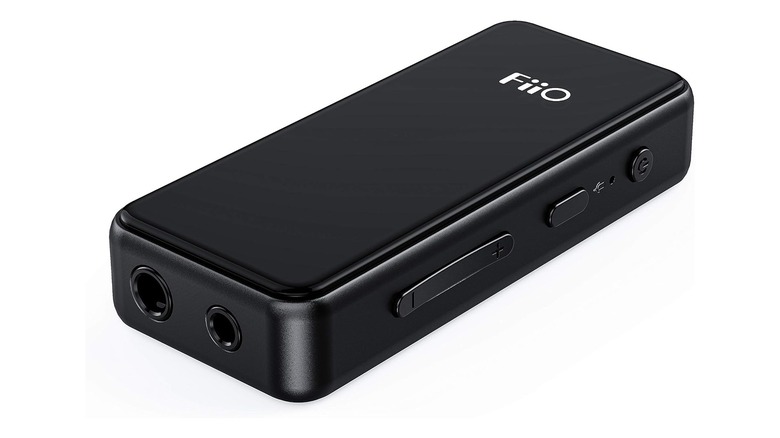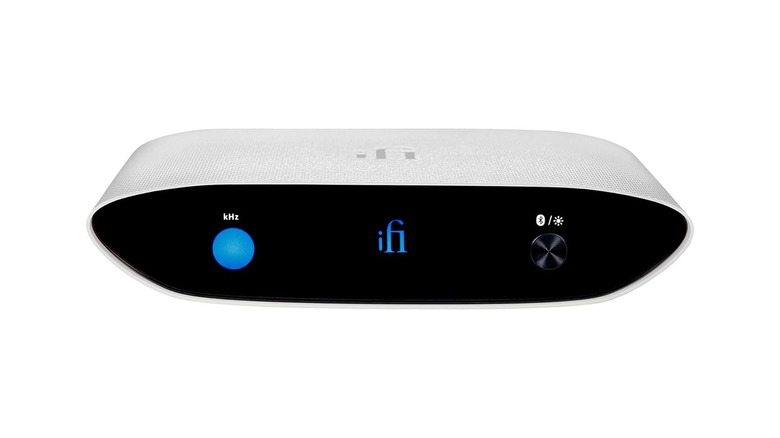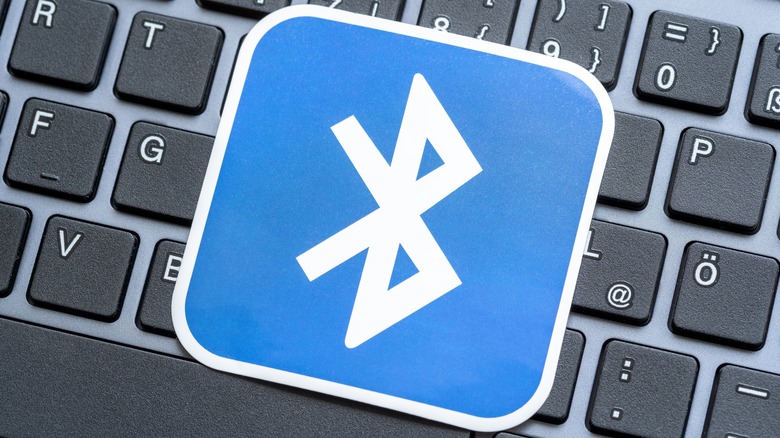Wireless Sound: Which Bluetooth Audio Receiver Is Right For You?
We may receive a commission on purchases made from links.
Bluetooth has forever changed how we think of home and personal audio. Its popularity made it a lot easier to rip the headphone jacks out of expensive smartphones. Eliminating wires helped create a cottage industry of small and often portable speakers, ranging from smaller speakers functioning as a boost for someone who just wants something that sounds better than their phone to bigger speakers that resemble older gear like boomboxes and mini-systems. That same technology has also made using your phone or another portable audio device with your car stereo a lot easier, as well, thus replacing AUX inputs and, in older cars, cassette deck adapters.
As that last example indicates, though, not everything that can receive a Bluetooth signal is a speaker or a pair of headphones. There are various forms of Bluetooth audio receivers designed to get audio from point A to point B, whether designed for use in your car or plugged into a public address system, part of an amplifier feeding and powering a pair of stereo speakers, among other possible use cases. So, let's look at a few of those use cases and — with help from expert reviews (more on that in the end) — some of the best-reviewed examples of each.
Bluetooth integrated amplifiers
One situation exists at the intersection of old-school analog and new-school digital: What if you have or are looking to buy some high-quality stereo speakers, like a pair of bookshelf or tower speakers, and want to be able to feed them any Bluetooth source of your choosing? Maybe you'd like to get into vinyl and want a turntable setup that can also play wireless sources just as easily as you'd spin a record on the same system. Though a home stereo system is not the default status symbol it used to be, there are enough reasonably priced speaker options that can easily deliver excellent sound without breaking the bank.
Enter integrated amplifiers, many of which now have Bluetooth receivers built in. Think of them as stripped-down AV receivers: There's no radio tuner, no video or surround sound capabilities, no smart features, and minimal inputs. It's just there to take your source audio and feed it to the speakers it's powering. Some of these manage to be tiny, unlike receivers, making it a lot easier to find room to set up a stereo.
If you're looking for a mini amp, veteran hi-fi audio writer Brent Butterworth at Wirecutter recommends the Fosi Audio BT20A Pro, which includes one analog input to supplement its Bluetooth antenna while pumping out 300W per channel. The BT20A Pro also got high marks from Future Audiophile, which said it "can be used for critical listening when coupled with high-quality loudspeakers." It usually sells for $79.99 to $99.99.
Bluetooth car kits
What if you want to add Bluetooth capabilities to your car, particularly an older one that doesn't have the built-in? There are three ways to go about this; choosing the right one depends on your personal preferences and what features your car has. The three ways to get Bluetooth into your car stereo are:
- FM transmitters, which allow you to listen to the Bluetooth audio on a radio frequency not used by any local broadcast stations.
- Bluetooth receivers that plug into your car's 3.5mm AUX input.
- Cassette adapters for older cars with cassette decks, essentially a clever hack that turns the compact cassette deck into an AUX input.
Ideally, any of these should include a car power port/"cigarette lighter" adapter and/or a battery with a long life to power the Bluetooth receiver portion of the device (and the FM transmitter if you go that route).
Your mileage may vary as to whether we should go with Wirecutter's recommendation here, as The New York Times-owned site deleted its Bluetooth car kit page in late 2023 after having not updated it in four years. That said, all of its previously suggested top picks are still available on Amazon in the same price range: The BESIGN BK01 for cars with AUX inputs and the GOgroove FlexSMART X3 Mini FM transmitter, with the latter also being the top pick of the Los Angeles Times. Wirecutter never recommended any cassette adapters, but professional reviews from TheDrive, AudioReputation, and Jalopnik all give high marks to Arsvita's version. All of these are in the $20 to $40 price range.
Bluetooth headphone adapters
This one is arguably something of an edge case, but it still has a very real practical use. If you're someone who still prefers to use wired headphones, whether you think they sound better or have a particular pair you like more than the available Bluetooth options, using them with a flagship phone has gotten increasingly complicated in recent years.
The iPhone ditched the headphone jack, and others, like the Samsung Galaxy S and Galaxy Note handsets, soon followed, requiring the use of Bluetooth headphones or a dongle with a built-in digital-to-analog converter (or DAC for short). For many, the dongles are good enough, but the best ones don't let you charge your phone while you're using headphones, and the ones that do often have their own problems.
Enter Bluetooth headphone adapters, which are Bluetooth receivers that can power a pair of analog headphones themselves. Some of them are primarily marketed as AUX adapters but will work fine as headphone adapters nonetheless. Over at Wirecutter, the top pick for most people is the 1Mii MiiLink ML100, which can be had for under $20 at Amazon. Wirecutter's Adrienne Maxwell described it as having "no major drawbacks," giving it a leg up over direct competitors that had various clear flaws.
For those wanting a higher quality DAC in their Bluetooth headphone adapter, Wirecutter picked the $109.98 Qudelix-5K, citing "the best Bluetooth reception and user experience of the pricier adapters, and it has more amp power, a better microphone, and more customization options than [its] top pick." That recommendation was seconded by Headphonesty and Hi-End Portable.
Bluetooth receivers for older stereos or powered speakers
As alluded to earlier, if you're buying a new receiver or integrated amplifier to power your stereo system, it probably has Bluetooth built in. The same goes for newer powered speaker systems. For a lot of people, though, building a stereo system involves using older/vintage components, the likes of which they might buy at thrift shops, garage sales, or on Craigslist. If you want to add Bluetooth to an older receiver/amp, you need a Bluetooth receiver. And though the cheaper ones may technically work, you're probably best off getting something higher quality that's specifically designed for being plugged into a stereo system, oftentimes made by an established mid-fi to hi-fi components company.
For most people, the folks at Wirecutter recommend the iFi Audio Zen Air Blue, which retails for $99. In business since 2012, iFi has become an established name in the hi-fi space, mainly for putting out high-quality DACs at reasonable prices. Wirecutter's Dennis Burger praises the Zen Air Blue's "amazing" sound quality and its "surprisingly good range" for the Bluetooth signal. Other hi-fi sites, like Headfonics, AVForums, and What H-iFi? strongly backed up that recommendation. For the budget-conscious, the $39.99 Monoprice Premium Bluetooth 5 Transmitter & Receiver got Wirecutter's nod, although the analog output was panned enough for it to be recommended mainly for outdoor speakers much more than for a hi-fi system.
Methodology
We took a few steps to narrow down the best picks. This isn't a category that we've reviewed much here at SlashGear, so we needed to look elsewhere for guidance. An excellent starting point is Wirecutter, The New York Times's product review and recommendation website. Speaking broadly, the particular draw of Wirecutter has always been that they test many different products in a given consumer electronics category before recommending the best options for most people at various price points.
More specifically, when it comes to audio hardware, its staff writers, like Brent Butterworth and Lauren Dragan, are veterans in the audio space who, with a mix of scientific measurements and their golden ears' subjective opinions, have an established track record of making good recommendations.
We've supplemented it with other professional reviews and potentially aggregated user reviews where possible. Some of the products discussed here, like Bluetooth cassette adapters and other surprisingly robust off-brand products, are obscure enough in 2023 that they have fewer professional reviews than would be ideal. In traversing the less-vetted off-site reviews, we did our best to prioritize more established websites and examine the lesser-known ones to avoid any AI-generated or otherwise boilerplate reviews.
